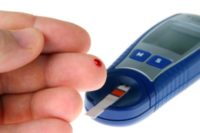 Workers who operate heavy equipment should not be prescribed opioids for pain management.
Workers who operate heavy equipment should not be prescribed opioids for pain management.
That recommendation is among those released recently by the American College of Occupational and Environmental Medicine (ACOEM), in an effort to highlight potentially unnecessary – and sometimes harmful – care.
Choosing Wisely®, an initiative of the ABIM Foundation, aims to encourage physician and patient conversations about specific tests or procedures that are commonly ordered but not always necessary in occupational and environmental medicine.
The list identifies five targeted, evidence-based recommendations that can help patients and physicians focus on what care is really needed:
• Don’t prescribe opioids for treatment of chronic or acute pain for workers who perform safety-sensitive jobs such as operating motor vehicles, forklifts, cranes, or other heavy equipment.
• Don’t initially obtain x-rays for injured workers with acute non-specific low back pain.
• Don’t order low back x-rays as part of a routine pre-placement medical examination.
• Don’t routinely order x-ray for diagnosis of plantar fasciitis/heel pain in employees who stand or walk at work.
• Don’t routinely order sleep studies (polysomnogram) to screen for/diagnose sleep disorders in workers suffering from chronic fatigue/insomnia.
Work-related injuries
“We believe it is critically important to engage our patients with work-related injuries or illnesses in conversations about what care is most necessary and beneficial for their health," said ACOEM President Ron Loeppke, MD, MPH. "These recommendations will help start important conversations about treatment options in occupational and environmental medicine.”
The ACOEM Choosing Wisely list was developed after months of careful consideration and review, using the most current evidence about management and treatment options. ACOEM routinely develops evidence-based clinical practice guidelines to assist physicians improve or restore the health of those workers who incur occupationally related illnesses or injuries. ACOEM’s Practice Guidelines, developed by expert panels, are the gold standard in effective treatment of occupational injuries and illnesses and are the only evidence-based guidelines that focus on returning employees to work within 90 days of an injury or illness.
How the recommendations were developed
In addition, the College promotes the high-quality practice of occupational and environmental medicine (OEM) through the publication, via the scientific peer-reviewed Journal of Occupational and Environmental Medicine, of position statements and guidance documents relevant to the field. ACOEM’s five recommendations were selected from the Practice Guidelines and the ACOEM position paper on fatigue risk-management in the workplace for the Choosing Wisely initiative. The position paper and the methodology for the development of the Practice Guidelines are available at www.acoem.org
Driving up health care costs
According to a report from the Institute of Medicine, up to 30 percent of health care spending is duplicative or unnecessary. Evidence shows that certain tests and medical procedures can actually cause harm when used unnecessarily – while driving up costs in the health care system. The ABIM Foundation and Consumer Reports launched Choosing Wisely in April 2012 with nine medical specialty societies. To date, more than 80 national and state medical specialty societies, regional health collaboratives and consumer partners have joined the conversations about appropriate care.
With the release of these new lists, the campaign will have covered more than 250 tests and procedures that participating organizations say are overused and inappropriate, and that physicians and patients should discuss.
About ACOEM
The American College of Occupational and Environmental Medicine (ACOEM) represents more than 4,000 physicians specializing in occupational and environmental medicine. Founded in 1916, ACOEM is the nation’s largest medical society dedicated to promoting the health of workers through preventive medicine, clinical care, disability management, research, and education. For more information, visit www.acoem.org.



